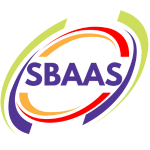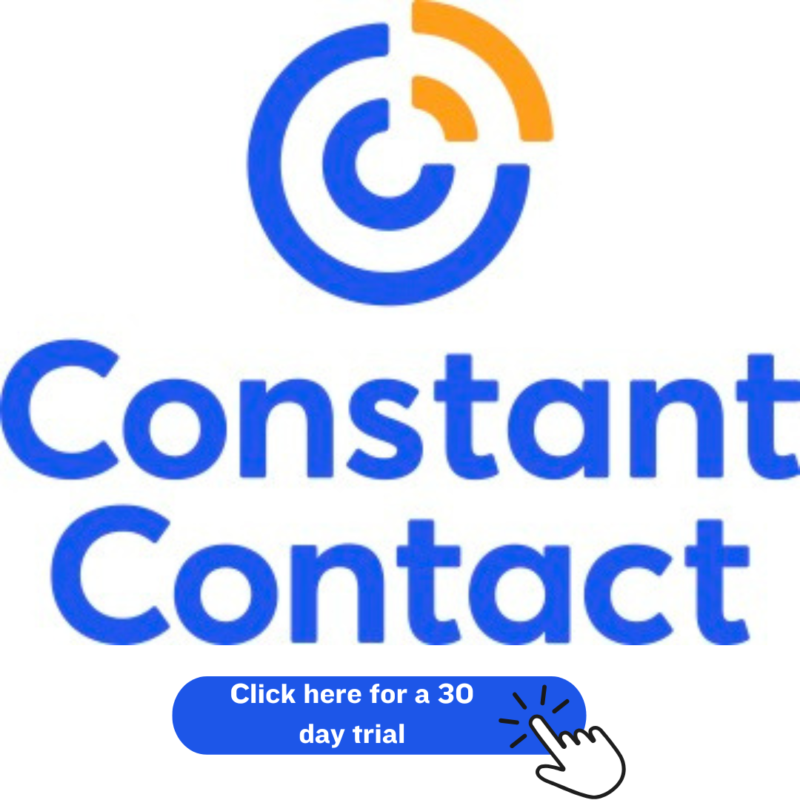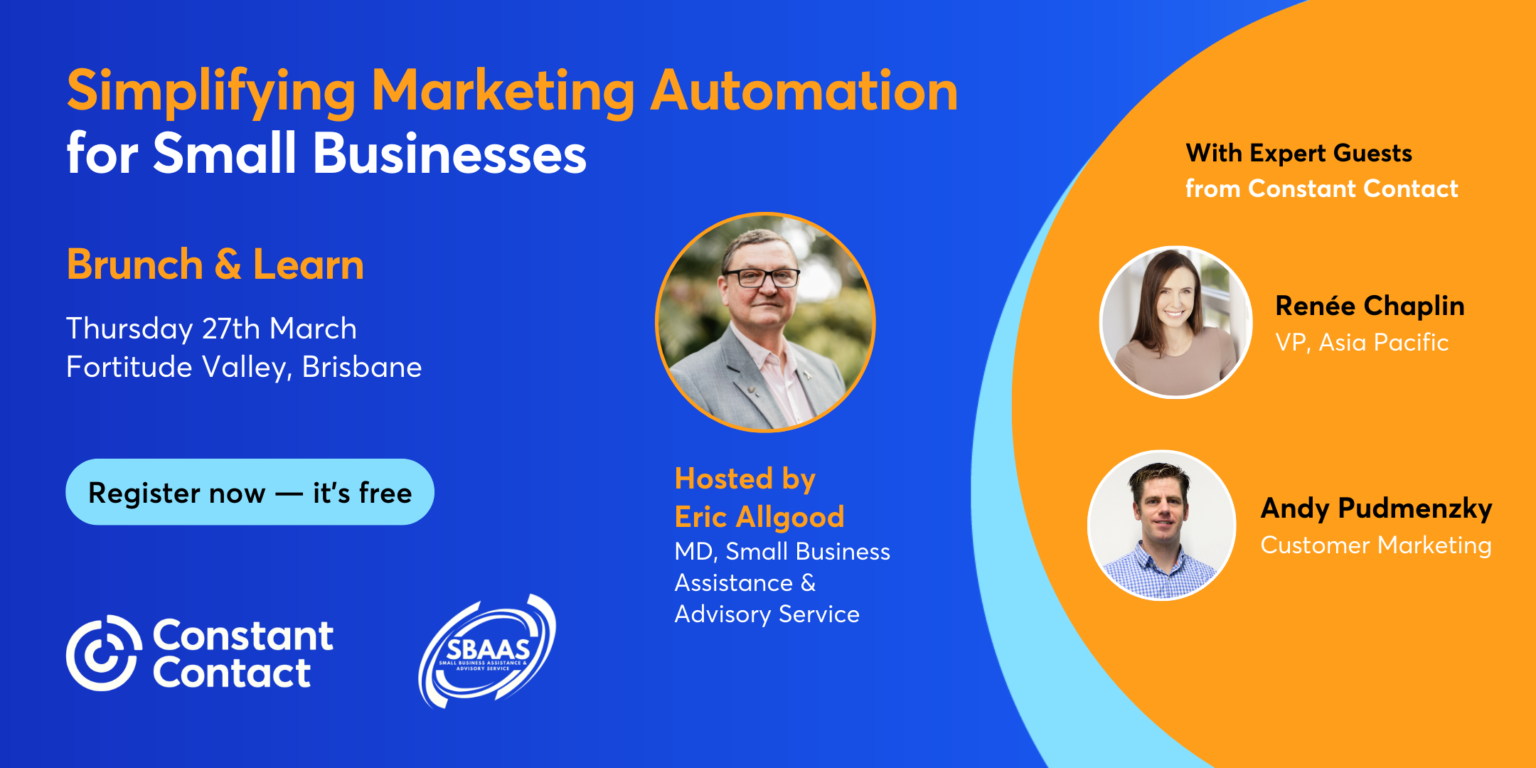Revolutionise Your Small Business Marketing with Automation
In today’s fast-paced business world, small businesses in Australia face increasing competition and rapidly evolving consumer expectations. With limited resources and tight budgets, staying ahead can be a challenge. However, leveraging small business marketing automation tools can turn this challenge into an opportunity for growth.
Automation simplifies marketing processes, saves time, and ensures consistent customer engagement. Platforms like Constant Contact lead the way, offering tools designed to empower small businesses. Here’s how to maximise their benefits while navigating the Australian economic landscape.
Why Small Business Marketing Automation Matters
Small businesses form the backbone of the global economy, representing a significant proportion of enterprises and providing employment opportunities worldwide. These enterprises drive innovation, create jobs, and contribute to local communities. However, many small business owners face challenges in maintaining consistent and effective marketing due to constrained resources, time limitations, and the personal toll of managing it all.
Marketing is often an after-hours task for small business owners, cutting into personal leisure and family time. Marketing automation offers a powerful solution by streamlining repetitive tasks such as email campaigns, social media management, and customer segmentation. By automating these processes, business owners can achieve professional results while regaining valuable personal time for themselves and their loved ones.
The benefits of marketing automation for small businesses extend beyond professional gains to include profound personal advantages:
Professional Benefits
- Time Efficiency:
Time is one of small business owners’ most valuable yet limited resources. Marketing automation significantly reduces the hours spent on repetitive, manual tasks. Business owners can save hours each week by automating email campaigns, social media scheduling, and customer follow-ups. Tasks that once extended into evenings and weekends are now handled effortlessly, freeing time for strategic business initiatives and personal priorities. - Cost-Effectiveness:
Operating within tight budgets is a reality for most small businesses. Marketing automation platforms provide cost-effective solutions by streamlining workflows and reducing the need for additional workforce. Tasks that previously required hiring staff—such as creating campaigns or analysing customer data—can now be managed automatically, lowering operational costs. For small business owners, this means more financial freedom to invest in other areas of the business or their personal lives. - Consistent Customer Engagement:
Building strong relationships with customers requires regular, meaningful communication. Automation ensures businesses remain visible to their audience by delivering timely updates, promotions, and personalised content. Automation tools work seamlessly to create these touchpoints, so business owners don’t need to sacrifice their evenings to craft email campaigns or schedule social media posts manually. This ensures customers stay engaged without overwhelming the business owner. - Enhanced Data Insights:
Actionable data power effective marketing. Automation platforms analyse customer behaviour and campaign performance, offering valuable insights into what’s working and what isn’t. These tools track open rates, click-through rates, and customer demographics. For small business owners, this eliminates the guesswork, allowing for smarter, more efficient marketing decisions that can be implemented without sacrificing personal time. - Scalability and Growth:
As businesses grow, their marketing needs become more complex and demanding. Managing these increasing requirements manually can quickly become unsustainable. Automation platforms are designed to scale alongside a growing business, accommodating larger audiences, more diverse campaigns, and expanding product lines without additional strain. This scalability ensures that owners can focus on enjoying the rewards of growth rather than being bogged down by its demands.
Personal Benefits
- More Family and Leisure Time:
Marketing often falls into the category of after-hours work for small business owners. The time spent writing newsletters, posting on social media, or following up with customers frequently intrudes on evenings, weekends, and even holidays. Automation tools eliminate this burden, enabling business owners to finish work during regular business hours and reclaim their time for leisure, hobbies, or family activities. - Reduced Stress:
The constant pressure of juggling multiple tasks can lead to burnout. Automation reduces this stress by taking care of routine marketing activities, allowing business owners to focus on higher-value aspects of their business or unwind. Knowing that marketing is handled efficiently provides peace of mind and helps create a healthier work-life balance. - Improved Work-Life Balance:
Achieving a balance between professional responsibilities and personal life is one of the biggest challenges for small business owners. By automating marketing tasks, owners can establish boundaries between work and home life, ensuring they have time for what matters most outside the business—family dinners, personal development, or simply relaxing. - Greater Flexibility:
With automation tools handling marketing, small business owners have more flexibility in how they spend their time. This means they can attend their child’s school play, take a holiday without constant interruptions, or dedicate more time to their personal goals—all while knowing their marketing campaigns are running seamlessly in the background. - Renewed Energy for Innovation:
When repetitive tasks don’t bog down business owners, they have more energy and mental clarity to focus on innovation, long-term planning, and creative pursuits. This benefits the business and contributes to personal growth and satisfaction.
The Bigger Picture
Marketing automation doesn’t just benefit small businesses professionally; it transforms the way owners manage their lives. By freeing time, reducing stress, and supporting a healthier work-life balance, automation empowers business owners to enjoy personal and professional success. In today’s fast-paced world, achieving this balance isn’t just desirable—it’s essential for long-term sustainability and happiness.
By leveraging the power of marketing automation, small businesses can overcome resource constraints, strengthen their competitive edge, and grow sustainably—all while giving owners the precious gift of time to spend on the things that matter most.
The Future of Small Business Marketing
Small businesses must take proactive steps to prepare for these shifts. By staying informed about emerging trends, investing in adaptable tools, and focusing on the customer experience, they can position themselves for long-term success. Marketing automation will remain at the heart of these efforts, enabling small businesses to compete effectively, scale efficiently, and deliver meaningful value to their customers.
The future of marketing is bright for those willing to embrace change and innovation. For small businesses, the journey begins with adopting the right tools, fostering a customer-centric mindset, and committing to continuous learning and adaptation.
Ready to simplify your marketing and grow your business? Book an appointment with SBAAS today to discuss your needs. Learn how automation can work for you by visiting our About Us page.
Start your journey towards effortless marketing now.
Sign up for an obligation-free trial of Constant Contact and experience the difference.
The Role of Constant Contact
Constant Contact is a game-changer for small businesses. Its suite of tools includes:
- Email Marketing: Create and schedule professional email campaigns with ease.
- Social Media Integration: Manage posts and ads across platforms from a single dashboard.
- Event Marketing: Promote events and track RSVPs effortlessly.
- Customer Insights: Use analytics to understand your audience better.
Marketing in the Australian Context
Australia’s economic landscape is unique, shaped by its geographical diversity, cultural nuances, and strong consumer preferences for supporting local businesses. Small businesses account for 97.5% of all enterprises in Australia, making them an essential driver of the nation’s economy. However, to thrive in this competitive market, small businesses must adapt their marketing strategies to meet both local demands and global influences.
Key Considerations for Marketing
- Localisation and Personalisation:
Australian consumers value tailored locally relevant content. Businesses that include cultural references, local language, and regional identity in their campaigns are more likely to connect with audiences. Personalised marketing, such as targeted emails and customised offers, resonates strongly in this market. - Digital Prowess:
With over 91% of Australians actively using the internet, digital marketing is crucial. Small businesses need a strong online presence that effectively uses email marketing, social media, and search engine optimisation. Platforms like Facebook, Instagram, and LinkedIn cater to varying audience demographics, making them integral to a digital strategy. - Eco-Conscious Messaging:
Sustainability is a growing concern for Australian consumers. Many actively seek products and services from businesses that demonstrate eco-friendly practices. By incorporating green initiatives and sustainability messaging into marketing efforts, businesses can align with consumer values and gain a competitive advantage. - Global Influence and Local Adaptation:
While global trends influence Australian consumer behaviour, success often depends on how well these trends are adapted to fit local contexts. Marketing campaigns integrating Australian humour, values, and identity usually perform better than generic, globally-focused ones. - Regional Focus:
Regional and rural businesses in Australia often rely on close-knit community ties. Effective marketing in these areas involves building relationships through consistent engagement and addressing the specific needs of local populations. Loyalty programs, personalised outreach, and word-of-mouth marketing are particularly impactful in these communities. - Support for Small Businesses:
Australians love to support small and family-run enterprises. Highlighting the human side of a business—its story, values, and community involvement—can make campaigns more relatable and successful. Sharing these narratives across digital platforms reinforces trust and connection with customers.
Challenges and Opportunities
Challenges
- Geographic Diversity:
Australia’s vast landmass presents challenges in reaching customers across different regions. Tailoring campaigns to urban, suburban, and rural audiences can be time-intensive without the right tools. - Economic Variability:
Small businesses must remain agile to address fluctuating economic conditions, including shifts in consumer spending and regional economic disparities.
Opportunities
- Digital Reach:
Australia’s high internet usage presents a massive opportunity for small businesses to expand their visibility cost-effectively through digital campaigns. - Community Engagement:
Australian consumers’ loyalty to local businesses provides a strong foundation for building lasting relationships through consistent and meaningful engagement.
Strategies for Success
- Audience Segmentation:
Dividing customers based on location, purchasing habits, and interests enables businesses to create more targeted and effective campaigns. - Multi-Channel Marketing:
Employing a mix of email, social media, and SMS ensures that businesses can reach their audience wherever they are most active. Unified messaging across these channels enhances impact and brand recognition. - Sustainability in Marketing:
Regularly showcasing eco-friendly practices and contributions to sustainability initiatives attracts customers and builds long-term trust. - Real-Time Adjustments:
Using analytics and feedback to refine campaigns on the fly helps businesses stay relevant and effective in a rapidly changing environment.
Marketing presents small businesses with a unique opportunity to stand out by focusing on localisation, community engagement, and digital innovation. By combining a deep understanding of the local market with cutting-edge tools, businesses can create campaigns that resonate deeply with Australian consumers while positioning themselves for sustainable growth in a competitive
Implementing Automation: Step-by-Step
Embarking on the marketing automation journey can seem daunting, but with a clear plan, small businesses can implement it effectively. Below is a comprehensive step-by-step guide to make the process smooth and impactful:
- Define Clear Objectives
Start by identifying your specific marketing goals. Do you want to grow your email subscriber list, improve customer retention, increase sales, or streamline campaign management? Clearly defined objectives ensure that automation efforts align with your broader business strategy. - Choose the Right Tools
Select a marketing automation platform that matches your business needs and budget. Look for features such as email marketing, social media scheduling, analytics, and customer segmentation. Ensure the platform is scalable, user-friendly, and integrates with existing systems like your CRM or e-commerce tools. - Map Out Your Customer Journey
Understand the typical paths your customers take, from initial engagement to conversion. Create a visual representation of these journeys to identify key touchpoints where automated interactions—like welcome emails or cart abandonment reminders—can enhance the customer experience. - Segment Your Audience
Divide your customer base into segments based on demographics, purchase history, preferences, or behaviours. Segmentation allows you to send targeted messages that resonate with specific groups, increasing the effectiveness of your campaigns. - Develop High-Quality Content
Automation can deliver messages, but the content itself must engage and convert. Invest time creating compelling emails, social media posts, and landing pages. Personalisation is key—use customer names, reference past interactions, and tailor offers to individual preferences. - Automate Repetitive Tasks
Identify tasks that consume time but add minimal strategic value, such as sending follow-up emails or scheduling social media posts. Use your automation platform to handle these processes, ensuring they run consistently without manual intervention. - Set Up Triggers and Workflows
Triggers are specific actions (e.g., a customer subscribing to your newsletter or abandoning their cart) that initiate automated responses. Workflows are sequences of automated tasks, such as a series of welcome emails or reminders. Carefully plan and configure these elements to guide customers effectively through their journey. - Test Your Automation
Before launching full-scale campaigns, test your automated processes to ensure everything runs smoothly. Check for broken links, incorrect personalisation, or poorly timed messages. Testing helps prevent errors that could impact customer perception. - Monitor Performance
Use the analytics features of your automation platform to track campaign performance. Monitor metrics such as open rates, click-through rates, and conversion rates. Regularly reviewing these metrics allows you to identify areas for improvement and optimise your strategies. - Refine and Scale
Marketing automation is not a one-time setup—it requires ongoing refinement. Use the insights gained from your campaigns to tweak workflows, update content, and expand automation efforts as your business grows. Introduce advanced features, such as predictive analytics or AI-driven personalisation, as you become more comfortable with the technology.
By following these steps, small businesses can harness the power of marketing automation to streamline operations, enhance customer relationships, and achieve long-term growth. Automation simplifies complex processes, enabling business owners to focus on strategic initiatives and personal success.
Overcoming Barriers to Adoption
While marketing automation offers undeniable benefits, many small business owners hesitate to adopt these tools due to misconceptions, technical challenges, or resource constraints. Addressing these barriers is crucial to unlocking the full potential of automation.
Below are the common barriers and practical strategies to overcome them:
- Perceived Complexity:
For many small business owners, automation can feel overwhelming or overly technical. The variety of available tools and features may create the impression that only tech-savvy professionals can manage automation effectively. To overcome this, start small by automating one or two simple tasks, such as sending welcome emails or scheduling social media posts. Many platforms offer user-friendly interfaces, step-by-step tutorials, and customer support to ease the learning curve. - Cost Concerns:
Budget limitations often deter small businesses from adopting automation tools. However, many platforms offer tiered pricing plans tailored to businesses of different sizes. Starting with a basic plan and scaling up as your needs grow can make costs manageable. Additionally, consider automation’s return on investment (ROI) in terms of time saved, increased efficiency, and improved customer engagement. - Time Investment in Setup:
While automation saves time in the long run, setting up workflows, segmenting audiences, and creating content can seem like a significant upfront investment. To address this, prioritise automating the most time-consuming or impactful tasks first. Many platforms offer templates, pre-built workflows, and drag-and-drop editors to simplify the setup process. - Fear of Losing Personal Touch:
Small businesses often pride themselves on offering personalised and authentic customer interactions. There’s a concern that automation could make communications feel robotic or impersonal. To combat this, focus on personalisation features within automation tools, such as addressing customers by name or tailoring messages based on past interactions. Automation doesn’t replace the personal touch—it enhances it by ensuring consistent and timely communication. - Lack of Awareness or Knowledge:
Many small business owners are simply unaware of the capabilities and benefits of automation. To bridge this gap, seek free webinars, tutorials, or local business workshops demonstrating how automation can work for your business. Many platforms also offer trial periods, allowing you to explore their features risk-free. - Resistance to Change:
Adopting new technology often requires a mindset shift. Resistance to change can stem from a fear of failure, comfort with existing methods, or a lack of confidence in managing new tools. Overcoming this requires clear communication about the benefits of automation, both for business outcomes and personal work-life balance. Start with small wins to build confidence and gradually expand automation efforts as you gain experience. - Integration Challenges:
Some businesses worry that automation tools won’t integrate seamlessly with their existing systems, such as customer relationship management (CRM) point-of-sale (POS) software. To address this, research platforms that offer robust integration options or consult with customer support teams to ensure compatibility.
By understanding and addressing these barriers, small businesses can confidently adopt marketing automation and reap its numerous benefits. With careful planning, gradual implementation, and a willingness to embrace change, automation can transform how businesses operate and engage with their customers, paving the way for sustainable growth and success.
The Future of Small Business Marketing
Small businesses must take proactive steps to prepare for these shifts. By staying informed about emerging trends, investing in adaptable tools, and focusing on the customer experience, they can position themselves for long-term success. Marketing automation will remain at the heart of these efforts, enabling small businesses to compete effectively, scale efficiently, and deliver meaningful value to their customers.
The future of marketing is bright for those willing to embrace change and innovation. For small businesses, the journey begins with adopting the right tools, fostering a customer-centric mindset, and committing to continuous learning and adaptation.
Ready to simplify your marketing and grow your business? Book an appointment with SBAAS today to discuss your needs. Learn how automation can work for you by visiting our About Us page.
Start your journey towards effortless marketing now.
Sign up for an obligation-free trial of Constant Contact and experience the difference.
Eric Allgood
Eric Allgood is the Managing Director of SBAAS and brings over two decades of experience in corporate guidance, with a focus on governance and risk, crisis management, industrial relations, and sustainability.
He founded SBAAS in 2019 to extend his corporate strategies to small businesses, quickly becoming a vital support. His background in IR, governance and risk management, combined with his crisis management skills, has enabled businesses to navigate challenges effectively.
Eric’s commitment to sustainability shapes his approach to fostering inclusive and ethical practices within organisations. His strategic acumen and dedication to sustainable growth have positioned SBAAS as a leader in supporting small businesses through integrity and resilience.
Qualifications:
- Master of Business Law
- MBA (USA)
- Graduate Certificate of Business Administration
- Graduate Certificate of Training and Development
- Diploma of Psychology (University of Warwickshire)
- Bachelor of Applied Management
Memberships:
- Small Business Association of Australia –
International Think Tank Member and Sponsor - Australian Institute of Company Directors – MAICD
- Institute of Community Directors Australia – ICDA
- Australian Human Resource Institute – CAHRI
-

Business in the Wonderful World of Oz – Workplace Health and Safety – A Comprehensive Guide
$29.95 Add to cart -

Business in the Wonderful World of Oz – Risk Management – A Comprehensive Guide
$29.95 Add to cart -

Business in the Wonderful World of Oz – Property Leasing – A Comprehensive Guide
$29.95 Add to cart -

Business in the Wonderful World of Oz – Intellectual Property Rights – A Comprehensive Guide
$29.95 Add to cart -

Business in the Wonderful World of Oz – Future-Ready: Navigating Change and Seizing Opportunity in Australian Business
$29.95 Add to cart -

Business in the Wonderful World of Oz – Fair Work – A Comprehensive Guide
$29.95 Add to cart -

Business in the Wonderful World of Oz – Export and Global Trade – A Comprehensive Guide
$29.95 Add to cart -

Business in the Wonderful World of Oz – Cyber Security – A Comprehensive Guide
$29.95 Add to cart -

Business in the Wonderful Land of Oz – Australian Consumer Law – A Comprehensive Guide
$29.95 Add to cart -

Business in the Wonderful World of Oz – Crisis Management
$29.95 Add to cart -

Business in the Wonderful World of Oz – The Ultimate Guide
$29.95 Add to cart



